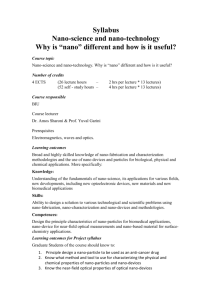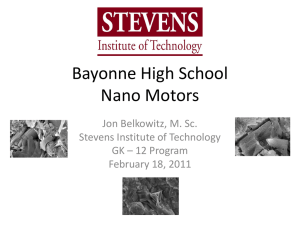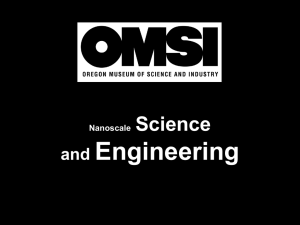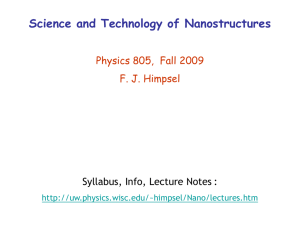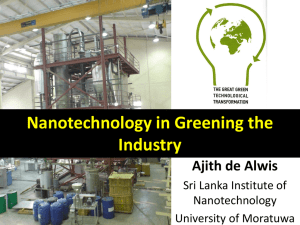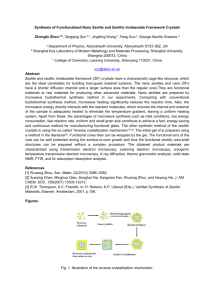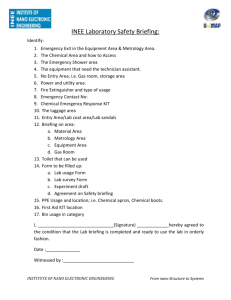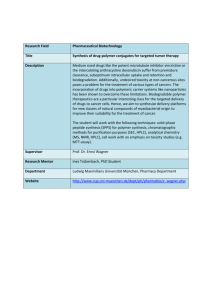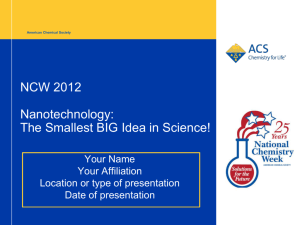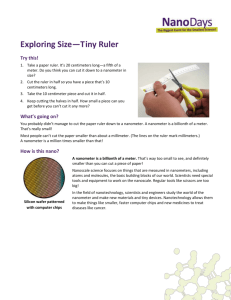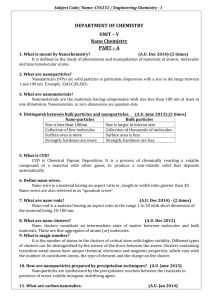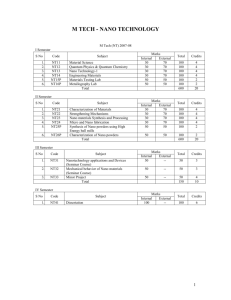A Case Study for the Synthesis of Nano materials
advertisement
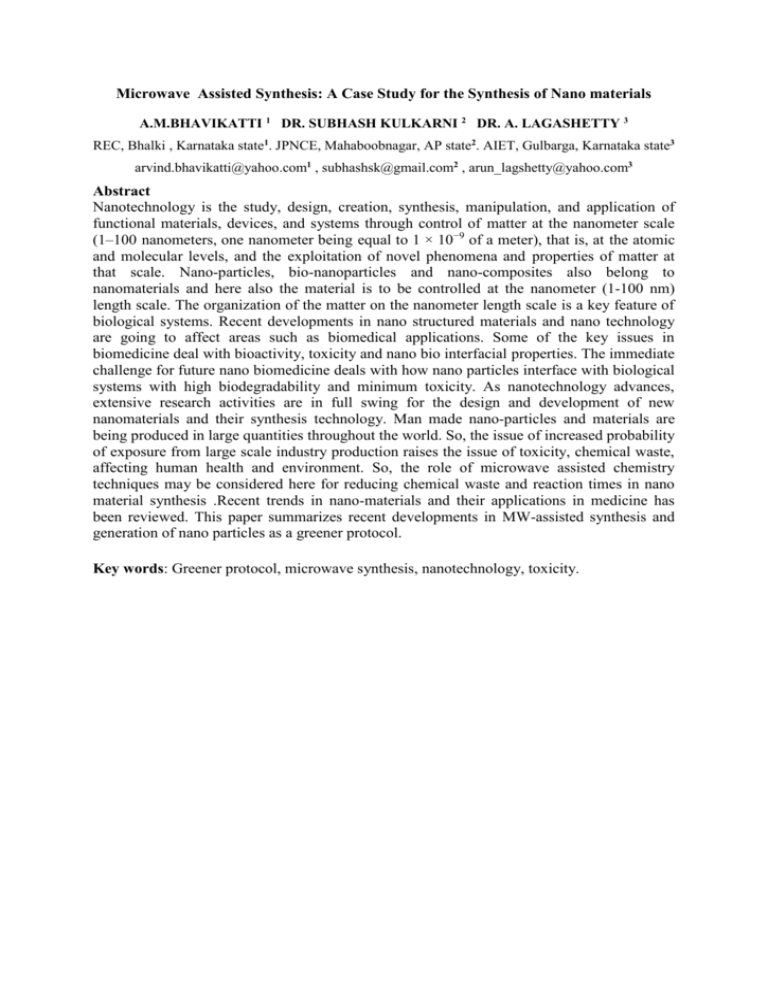
Microwave Assisted Synthesis: A Case Study for the Synthesis of Nano materials A.M.BHAVIKATTI 1 DR. SUBHASH KULKARNI 2 DR. A. LAGASHETTY 3 REC, Bhalki , Karnataka state1. JPNCE, Mahaboobnagar, AP state2. AIET, Gulbarga, Karnataka state3 arvind.bhavikatti@yahoo.com1 , subhashsk@gmail.com2 , arun_lagshetty@yahoo.com3 Abstract Nanotechnology is the study, design, creation, synthesis, manipulation, and application of functional materials, devices, and systems through control of matter at the nanometer scale (1–100 nanometers, one nanometer being equal to 1 × 10−9 of a meter), that is, at the atomic and molecular levels, and the exploitation of novel phenomena and properties of matter at that scale. Nano-particles, bio-nanoparticles and nano-composites also belong to nanomaterials and here also the material is to be controlled at the nanometer (1-100 nm) length scale. The organization of the matter on the nanometer length scale is a key feature of biological systems. Recent developments in nano structured materials and nano technology are going to affect areas such as biomedical applications. Some of the key issues in biomedicine deal with bioactivity, toxicity and nano bio interfacial properties. The immediate challenge for future nano biomedicine deals with how nano particles interface with biological systems with high biodegradability and minimum toxicity. As nanotechnology advances, extensive research activities are in full swing for the design and development of new nanomaterials and their synthesis technology. Man made nano-particles and materials are being produced in large quantities throughout the world. So, the issue of increased probability of exposure from large scale industry production raises the issue of toxicity, chemical waste, affecting human health and environment. So, the role of microwave assisted chemistry techniques may be considered here for reducing chemical waste and reaction times in nano material synthesis .Recent trends in nano-materials and their applications in medicine has been reviewed. This paper summarizes recent developments in MW-assisted synthesis and generation of nano particles as a greener protocol. Key words: Greener protocol, microwave synthesis, nanotechnology, toxicity.
